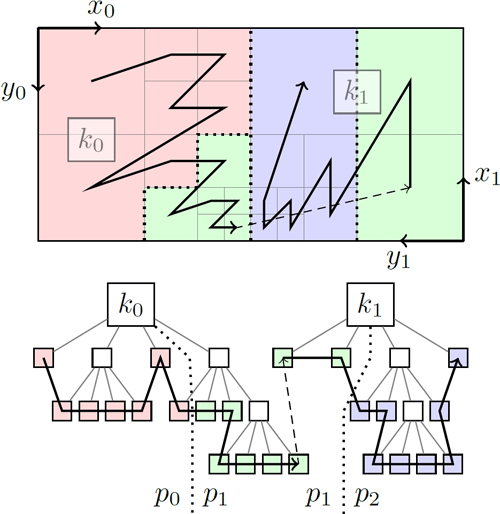High resolution parallel simulation of variably saturated flow with adaptive mesh refinement




Research Area:
Hydrology; high-performance computing

The amount of subsurface flow data that is obtained from measurements is growing exceedingly fast; in fact, several novel ways of measuring such data are contributed by the TR32 collaborative project. This opens the opportunity of developing highly resolved computational models of subsurface flow and to validate them with experimental data. In practice however, assuming a uniform computational mesh at the sub-meter or even centimeter scale, computation tends to become prohibitively slow since each doubling of resolution in space-time necessarily incurs at least a 16x increase in computational cost. One possible remedy is to increase resolution only where needed by way of adaptive mesh refinement (AMR).
The ParFlow code is parallelized, but currently restricted to using a uniform mesh. Due to the irregular data dependencies and communication patterns that are induced by AMR, its efficient integration is a challenging task. While a development of suitable AMR techniques from scratch would exceed the scope of a single project, there exists a collection of scalable algorithms for parallel mesh generation and modification, namely the freely available p4est software, which divides the mesh effectively using tree-based concepts (see picture). The central objective of this research project is thus to integrate ParFlow with p4est, and to add AMR capabilities to the finite element discretization and numerical solvers.
To enable finely discretized parameter and flow fields, a strong focus must be placed on parallel scalability of both algorithms and implementation. This applies to both the adaptive discretization and the design of multilevel preconditioners.
Cooperation partner:
n/a